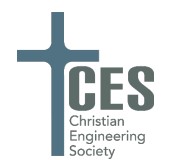Document Type
Paper
Abstract
As engineering programs attempt to develop engineering graduates who stand out to potential employers, integration of the Entrepreneurial Mindset (EM) is increasingly common. The Kern Entrepreneurial Engineering Network (KEEN) currently has 63 partner institutions who have committed to curriculum oriented towards developing EM in students and graduates. KEEN defines the entrepreneurial mindset using 3Cs: curiosity, connections, and creating value. This entrepreneurial mindset is then coupled with engineering thought and action, expressed through collaboration and communication, and founded on character.
This framework is useful, but incomplete when viewed in the context of a Christian engineering program. The framework provides a strong idea of what the goals are, and resources have been made freely available to show how to get towards those goals. The challenge is that the why is disconnected from a Christian engineering perspective, lacking particularly in areas of meaning and relation to God’s greater redemptive story. In this paper, we propose augmenting the 3Cs of the KEEN EM framework with a 4th: Christian Thought and Action. This addition should not be considered as a stand-alone or separate outcome and should be integrated with the others to explain and motivate the other 3Cs.
In this paper, we attempt to develop an extended framework for EM in Christian engineering programs. In addition, this extended framework was applied as a guide for the redesign of the Introduction to Engineering course at Anderson University. This redesign had two primary objectives:
- Integrating activities that stimulate development of an Entrepreneurial Mindset and the 3Cs
- Integrating faith in and through these activities, developing a connective tissue between the 3Cs and Christian thought and action
We measure the impact of this redesigned course on student perception of their development of the entrepreneurial mindset and their perceived ability to relate the engineering vocation to faith.
Creative Commons License

This work is licensed under a Creative Commons Attribution-Noncommercial-No Derivative Works 4.0 License.
Copyright
© 2024 Benjamin D. McPheron. All rights reserved.
Augmenting Entrepreneurially Minded Learning with Christian Thought and Action
As engineering programs attempt to develop engineering graduates who stand out to potential employers, integration of the Entrepreneurial Mindset (EM) is increasingly common. The Kern Entrepreneurial Engineering Network (KEEN) currently has 63 partner institutions who have committed to curriculum oriented towards developing EM in students and graduates. KEEN defines the entrepreneurial mindset using 3Cs: curiosity, connections, and creating value. This entrepreneurial mindset is then coupled with engineering thought and action, expressed through collaboration and communication, and founded on character.
This framework is useful, but incomplete when viewed in the context of a Christian engineering program. The framework provides a strong idea of what the goals are, and resources have been made freely available to show how to get towards those goals. The challenge is that the why is disconnected from a Christian engineering perspective, lacking particularly in areas of meaning and relation to God’s greater redemptive story. In this paper, we propose augmenting the 3Cs of the KEEN EM framework with a 4th: Christian Thought and Action. This addition should not be considered as a stand-alone or separate outcome and should be integrated with the others to explain and motivate the other 3Cs.
In this paper, we attempt to develop an extended framework for EM in Christian engineering programs. In addition, this extended framework was applied as a guide for the redesign of the Introduction to Engineering course at Anderson University. This redesign had two primary objectives:
- Integrating activities that stimulate development of an Entrepreneurial Mindset and the 3Cs
- Integrating faith in and through these activities, developing a connective tissue between the 3Cs and Christian thought and action
We measure the impact of this redesigned course on student perception of their development of the entrepreneurial mindset and their perceived ability to relate the engineering vocation to faith.

